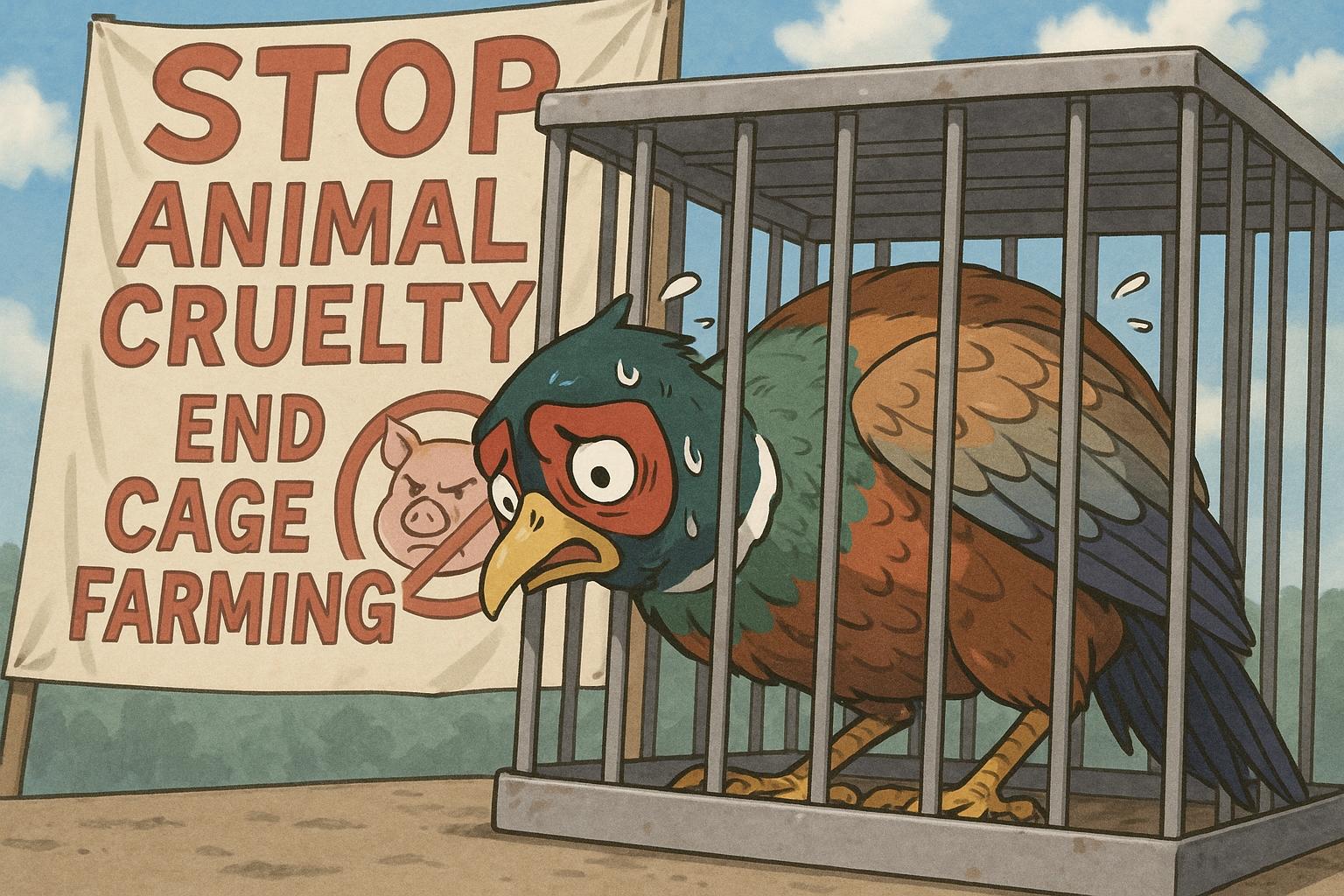A recent protest by the League Against Cruel Sports, characterised by the visual impact of birds crammed into stark, small cages, has spotlighted the contentious issue of animal welfare in the game bird breeding industry. The demonstration, staged outside the Senedd in Wales, aims to draw attention to what the league describes as "low welfare standards" for pheasants and partridges reared primarily for sport. Emma Slawinski, the league's chief executive, articulated the distressing conditions faced by these birds, noting the injuries they often sustain while attempting to escape their confinement.
Highlighting the plight of these birds, Slawinski remarked that "these cages are tiny, they are bleak, and the birds suffer immensely." She underscored the brutal realities of their existence, with females reportedly suffering injuries due to the aggressive behaviours of males, all in the service of producing tens of millions of eggs solely for shooting purposes. Her statement encapsulates the broader ethical concerns surrounding animal farming practices, especially regarding species bred explicitly for recreational shooting.
The protest aligns with a mounting public campaign advocating for a ban on cage-based farming systems. A petition spearheaded by actress and activist Dame Joanna Lumley has garnered over 100,000 signatures, reflecting strong public sentiment against the confinement of farmed animals. The petition calls for legislative action to prohibit cages for a variety of farmed species, including laying hens and game birds like partridges and pheasants. With a closing date set for July 2025, the petition has gained significant traction and acknowledges the growing momentum towards humane farming practices.
As awareness about the adverse effects of caged farming rises, the UK government has indicated that it is considering the implications surrounding animal welfare and trade. Yet, tangible legislative changes remain elusive. Advocacy organisations such as Compassion in World Farming and UK Voters for Animals have emphasised the urgent need for phasing out cages and advancing animal welfare standards. They highlight that several European countries have already made significant strides in this direction, reinforcing the idea that the UK could and should follow suit.
Furthermore, the European Parliament has already voted in favour of bans on caged farming practices, advocating for measures that would render such systems illegal across the EU by 2027. This move sets a precedent that could potentially influence legislative discussions in the UK. With voices from across sectors calling for progressive change, the ongoing dialogue surrounding caged farming looks increasingly poised for transformation.
Appealing for urgency, Slawinski asserted, "It is time for change and it is time for the government to ban these cruel cages." With public support mounting and political discourse shifting, the path toward enacting meaningful reform in animal welfare legislation seems more achievable than ever before.
As the debate unfolds, the focus continues to intensify on ensuring ethical treatment of all farmed animals, pushing policymakers to take decisive action that resonates with the humane values held by a growing segment of society.
Reference Map
- Paragraphs 1, 2, 5
- Paragraphs 3, 4, 6
- Paragraph 4
- Paragraph 4
- Paragraph 3
- Paragraph 4
- Paragraph 4
Source: Noah Wire Services
